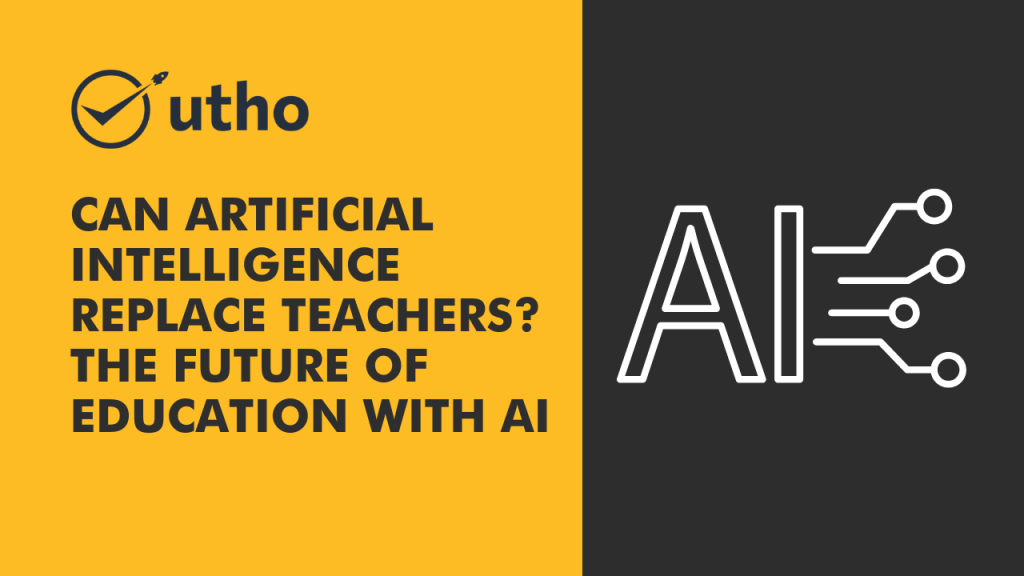Can Artificial Intelligence Replace Teachers? The Future of Education with AI

**Introduction**
The rapidly changing landscape of education is being shaped by artificial intelligence (AI), a force with the potential to revolutionize traditional teaching methodologies. AI-driven tools and platforms have already demonstrated their ability to automate tasks, tailor learning experiences, and enhance educational outcomes. However, the question that looms is whether AI can ever fully supplant the role of teachers.
The Rise of AI in Education
The adoption of AI in education is experiencing exponential growth. Valued at $1.2 billion in 2021, the global AI in education market is projected to reach an astonishing $12.8 billion by 2028. The rationale behind this surge is manifold. AI possesses the capability to streamline laborious and repetitive tasks for teachers, such as grading assignments and crafting lesson plans. Moreover, AI's capacity to customize learning for individual students based on their distinct needs and preferences further bolsters its appeal.
The Benefits of AI in Education
An array of potential advantages accompanies the integration of AI into education. Some key benefits include:
1. Automated Grading: AI can automate the grading of papers, quizzes, and exams. This efficiency translates to more time for teachers to focus on vital tasks, such as delivering personalized instruction.
2. Instant Feedback: AI provides instantaneous feedback to students on their assignments, fostering more effective learning and pinpointing areas requiring additional attention.
3. Adaptive Learning: Personalizing learning to suit each student's pace and preferences, AI helps facilitate more efficient comprehension and mastery of subjects.
4. Cost Savings: By automating administrative chores like class scheduling and student registration, AI contributes to reducing the overall cost of education.
5. Enhanced Accessibility: AI's real-time translation capabilities can augment the accessibility of education for students with disabilities, ensuring inclusivity.
The Limitations of AI in Education
While the benefits are clear, limitations persist within AI-infused education:
1. Emotional Intelligence Deficit: AI lacks the emotional intelligence inherent to human teachers, impeding its capacity to offer comparable levels of support and motivation.
2. Bias Concerns: AI can perpetuate biases rooted in its training data, potentially exacerbating inequalities and stereotypes within the educational landscape.
3. Privacy Considerations: Privacy concerns arise regarding the use of AI to track students' online activities and gather personal information.
The Role of Teachers in the AI Era
Despite these limitations, human teachers retain an indispensable role in the AI-driven educational landscape. Their responsibilities encompass:
1. AI Oversight: Teachers must possess proficiency in utilizing AI effectively and ethically, ensuring responsible use within the classroom.
2. Human Touch: Human teachers provide irreplaceable emotional support, motivation, and guidance that AI cannot replicate.
3. Collaboration with AI: A symbiotic relationship between teachers and AI will foster a more personalized and impactful learning environment.
Finding the Balance: AI and Teachers as Partners
The foreseeable future of education is one of synergy between AI and human teachers. While AI can streamline tasks, individualize learning experiences, and elevate educational outcomes, human teachers remain pivotal for emotional connections and effective collaboration with AI.
Conclusion
AI's transformative potential in education is undeniable, yet its implementation is still in its nascent stages. By striking the right equilibrium between AI and human educators, we can forge a path toward a personalized, efficient, and universally accessible learning journey for all students.
Read Also: Ethics and Regulation of AI: The Next Frontier for Artificial Intelligence